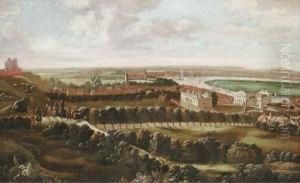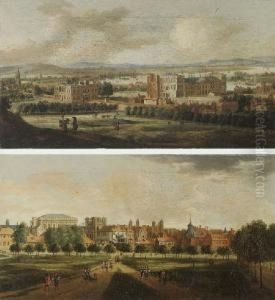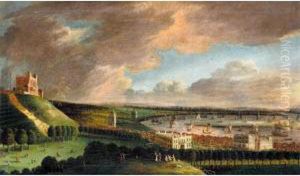Jan Vosterman Paintings
Jan Janszoon de Vos, known as Jan Vos or Vosterman, was a prominent Dutch poet and playwright, active during the Dutch Golden Age, a period of great wealth and cultural achievement for the Netherlands. Born in 1591 in the bustling city of Amsterdam, Vosterman's early life is not well-documented, but he emerged as a significant figure in the Dutch literary scene by the early 17th century. His contributions were primarily in the realm of theater and poetry, where he became known for his vivid language and the ability to capture the essence of the human condition.
Vosterman's works often reflected the socio-political climate of his times, providing commentary on the complexities of human nature, power, and morality. His most notable contributions were to the Amsterdamse Schouwburg (Amsterdam Theatre), where he was not only a playwright but also served in various administrative capacities, contributing to the flourishing of Dutch drama during this era. His plays were celebrated for their emotional depth and intricate plotlines, making him a beloved figure among the Dutch bourgeoisie, who were his primary audience.
Despite his success, details about Vosterman's personal life remain scarce, with most historical records focusing on his professional achievements. He died in 1652, leaving behind a legacy that would influence Dutch literature and theater for generations. His works continued to be performed and admired long after his death, securing his place as one of the luminaries of the Dutch Golden Age. Although not as widely recognized internationally as some of his contemporaries, Vosterman's contributions to the arts remain a testament to the vibrant cultural landscape of 17th-century Netherlands.


